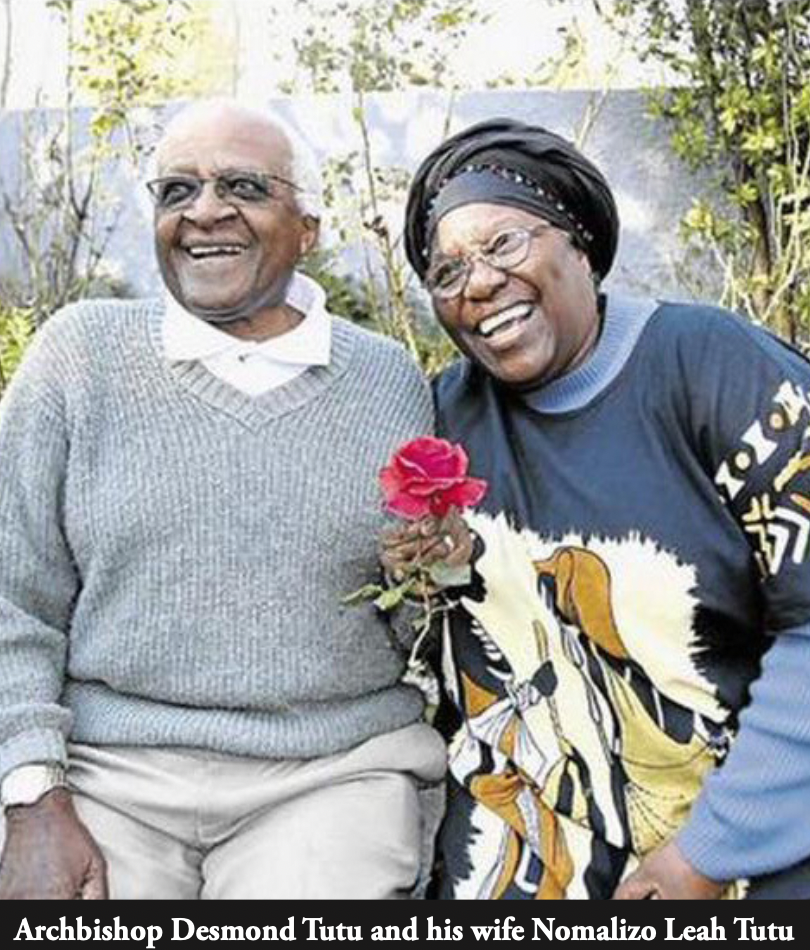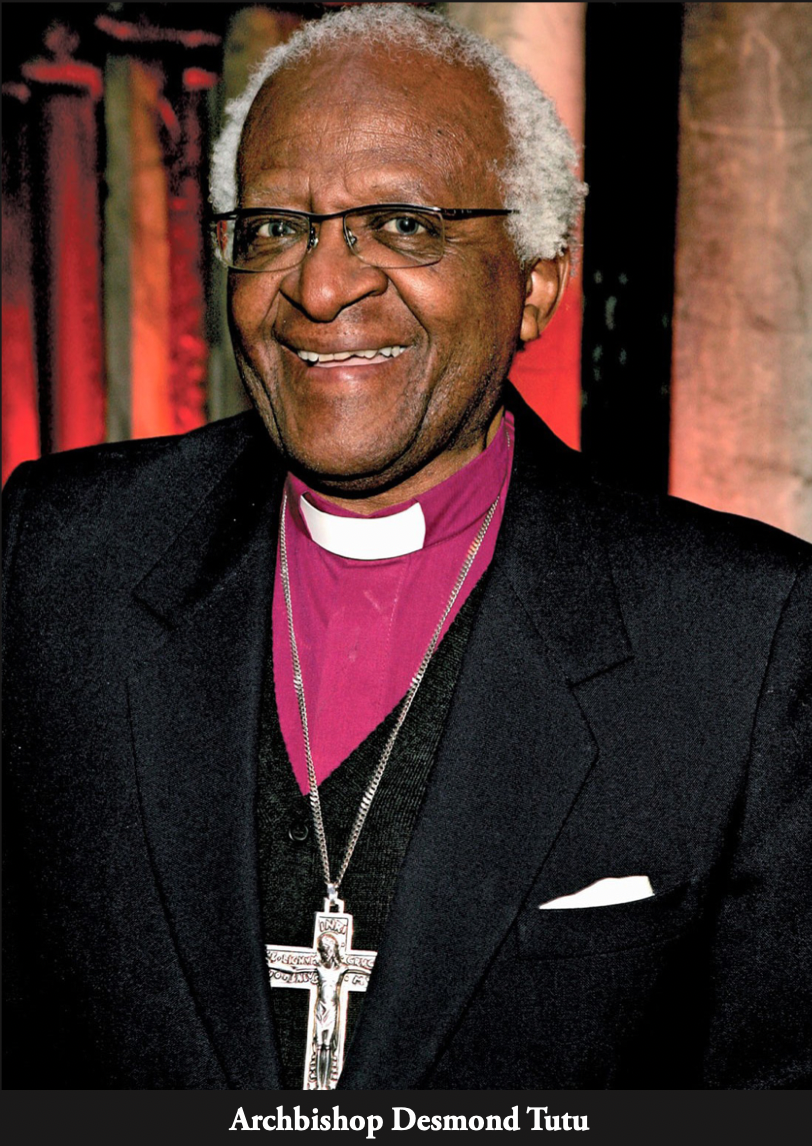Tributes from national and world leaders are pouring in as the world prepares to give a final farewell to Archbishop Desmond Tutu. The South African activist who helped fight to dismantle the country’s segregated apartheid government died on December 26. He was 90.
Tutu reportedly had been hospitalized several times since 2015 after being diagnosed with prostate cancer in 1997.
The Associated Press reported that a seven-day mourning period is planned in Cape Town before Tutu’s burial. There will be a two-day lying-in-state, an ecumenical service and an Anglican requiem Mass at St. George’s Cathedral in Cape Town. The southern city’s landmark Table Mountain will be lit up in purple, the color of the robes Tutu wore as Archbishop.
Meanwhile, organizations and leaders around the world on Twitter are remembering Tutu as South Africa’s moral conscience who fought for justice and equality for that country’s disenfranchised Blacks and poor citizens.
The Congressional Black Caucus said, “We are deeply saddened by the news of Archbishop Desmond Tutu’s passing. He was a powerful force for good and a giant among men. May his memory be a blessing.”
Derrick Johnson, president and CEO of the NAACP, said in a simple statement, “Your Moral Leadership. Your Character. Your Perseverance. Your Voice. Our Gift. THANK YOU.”
Hours after Tutu’s death, Reverend Jesse L. Jackson released a long statement, comparing Tutu to Reverend Dr. Martin Luther King, Jr.
“I had the pleasure of knowing Bishop Tutu, a person who inspired me, along with many others not only in South Africa but justice lovers around the world,” Jackson said. “His non-violent leadership on ending apartheid in South Africa made him akin to Dr. Martin Luther King, Jr.’s civil rights leadership in America.”
Former U.S. President Barack Obama praised Tutu as “a moral compass for me and so many others. A universal spirit, Archbishop Tutu was grounded in the struggle for liberation and justice in his own country, but also concerned with injustice everywhere. He never lost his impish sense of humor and willingness to find humanity in his adversaries.”
Tutu won the Nobel Peace Prize in 1984 for his decades of fighting South Africa’s brutal apartheid system that revoked the citizenship of millions of Blacks and banned them from mingling with whites in public places, including restaurants, bars and stores.
Born on October 7, 1931, in Klerksdorp, west of Johannesburg, Tutu’s father was a teacher, and he himself was educated at Johannesburg Bantu High School. After leaving school, he trained first as a teacher at Pretoria Bantu Normal College. In 1954, he graduated from the University of South Africa. After three years as a high school teacher, he studied theology. He was ordained as a priest in 1960. In 1967, Tutu became chaplain at the University of Fort Hare, a college that historically educated Black students before it was favored by South Africa’s apartheid government.
Tutu’s historic achievement came as world leaders were increasing pressure for South Africa to end its apartheid system of government that began in 1948. Although Blacks were the majority of the country’s population, the South African government under President Hendrik Frensch Verwoerd believed Blacks were inferior and implemented apartheid policies that made whites the majority who were then treated as the superior race.
Under apartheid, millions of Blacks were evicted from their homes and had their citizenship revoked before they were relocated to newly created countries. They were not allowed to marry whites or frequent public establishments owned and operated by whites.
Despite condemnation from world leaders and the United Nations, the apartheid system remained in place and was strongly supported by South African President P.W. Botha, who was in office as Tutu emerged as a prominent world leader and a strong voice for South Africa’s disenfranchised Black citizens.
After freed political activist Nelson Mandela became South Africa’s first Black president under the new African National Congress, he appointed Tutu to chair the country’s Truth and Reconciliation Commission, which uncovered the abuses of apartheid. That commission investigated the notorious Sharpeville massacre that occurred in 1960 when police fired on thousands of Blacks after 10,000 were forcibly removed from their homes amid rising pneumonia cases.
About 69 people were killed and 180 injured, including 31 women and 19 children. Many were shot in the back as they turned to flee, causing some to be paralyzed. Police said many officers were inexperienced and panicked at the sight of the protestors, but the commission headed by Tutu said the police gunfire was a deliberate act.
In 2013, Tutu attended the funeral of his friend Mandela. It was the largest gathering of world leaders in the history of humanity, with four U.S. presidents in attendance, including Barack Obama and his wife, Michelle.
Now, world leaders will say farewell to Tutu.
Tutu’s death “is another chapter of bereavement in our nation’s farewell to a generation of outstanding South Africans who have bequeathed us a liberated South Africa,” South African President Cyril Ramaphosa told the Associated Press.
“From the pavements of resistance in South Africa to the pulpits of the world’s great cathedrals and places of worship, and the prestigious setting of the Nobel Peace Prize ceremony, the Arch[bishop] distinguished himself as a non-sectarian, inclusive champion of universal human rights,” he said.
Tutu is survived by his wife of 66 years, Leah, with whom he had four children.







